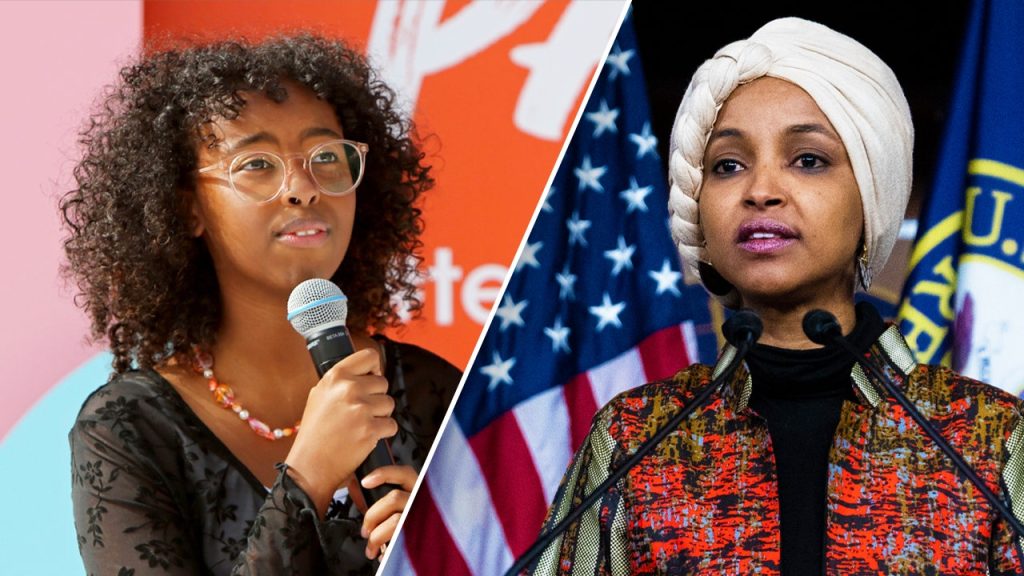The daughter of U.S. Rep. Ilhan Omar, Isra Hirsi, was taken into police custody during protests at Columbia University. She was put into flex cuffs or zip ties and is expected to face trespassing charges. The incident is still developing, and further updates are expected to provide more information on the situation. Hirsi’s involvement in the protests adds a new layer to the ongoing debate over activism, free speech, and the role of political figures’ family members in public demonstrations.
The news of Hirsi’s detention highlights the complex relationship between political figures and their families when it comes to activism and public protests. While it is not uncommon for the children of politicians to engage in social and political causes, their actions can also attract unwanted attention and scrutiny. In this case, Hirsi’s connection to Rep. Ilhan Omar may have played a role in her detention, as her status as a public figure’s daughter could have influenced the police response to the protests at Columbia University.
The incident at Columbia University raises questions about the limits of free speech and the right to protest in the United States. Trespassing charges, like the ones Hirsi is expected to face, are a common response to public demonstrations that disrupt normal operations or cause disturbances on private property. However, the decision to arrest and charge protesters can also be seen as an attempt to silence dissent and discourage activism, particularly when it involves high-profile figures like Rep. Ilhan Omar and her family.
The ongoing debate over activism and public protests is a contentious issue in American society, with supporters arguing that demonstrations are a crucial tool for social change and political engagement. Critics, on the other hand, contend that protests can lead to violence, property damage, and disruptions that undermine public safety and order. In the case of the protests at Columbia University, the arrest of Isra Hirsi may be seen as a punitive measure to deter further demonstrations and discourage other activists from engaging in similar actions.
As the story continues to unfold, it is likely to spark discussions about the responsibilities and risks that come with engaging in public protests, particularly for individuals with close ties to public figures like Rep. Ilhan Omar. The incident at Columbia University serves as a reminder of the challenges and consequences that can arise when activism intersects with political influence and personal relationships. It also underscores the importance of understanding the nuances of free speech, protest rights, and law enforcement responses in the context of contemporary social and political movements.
Overall, the detention of Isra Hirsi at Columbia University sheds light on the complexities of activism, free speech, and the role of political figures’ family members in public demonstrations. As the story unfolds, it will prompt further inquiries into the boundaries of protest rights, the impact of political connections on law enforcement actions, and the ongoing debates over the role of activism in shaping social and political change. The incident underscores the challenges and risks faced by individuals who choose to engage in public protests, particularly when they are linked to prominent political figures like U.S. Rep. Ilhan Omar.


